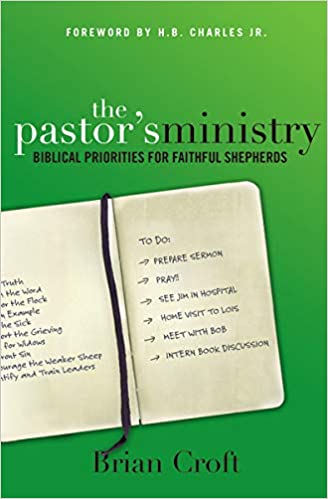Yesterday, the church installed him as its pastor. There were prayers, hugs, smiles, songs, food, photos, but today is Monday, where to start?You know you have to prepare excellent sermons, make disciples, and evangelize, but how do we get started?What should you do at the beginning of the apartment?
You feel like you shouldn’t be doing certain things. No, don’t stay home watching sports on TV. Don’t think you can change everything in three months. You have a degree, but the position of pastor is granted and there is much to learn about your church before you start making changes. In addition, Christ promised to build his church. You don’t have to try to grow up.
With that in mind, there are five priorities you must set at the beginning of your ministry.
Priority 1? Learn as much as you can about church members (participation?1 Peter 5. 1-4).
You’re a shepherd. Good shepherds exhale the smell of sheep and know them by name. Tip: Read the minutes of previous meetings. Learn as much as you can about founding the church. What was the original doctrinal statement?If so, why, has the church ever suffered divisions, is there an unresolved problem?
Familiarize yourself with the oldest members of the church. Your perception of the congregation will improve with conversations with them. Ask them about traditions, history, administrative procedures, etc. Ask questions that can be asked of all church members to assess their spiritual health. Your participation? And the confidence you gain, this can be even more valuable than the information it collects.
Priority 2? spend time with your leaders (humility? Philippians 2. 5-8).
Tip: Visit managers in your workplace. Know your family, your story, your contribution, and your virtues. Ask them the questions you plan to ask the congregation. Ask them to share topics you can pray for and ask them how best to do so. Serving the Church Learn About Your Church Health Assessment Have a list of books that might suggest reading them Plan a meeting with them to learn better Tell them what you hope to learn about the congregation. Discuss the history of the church with them, what events could be held?Tell them about their evangelistic conversations. Send them emails every day.
Serving your leaders will be an example of how you can serve the church. Your church leaders should be the first to become disciples.
Priority 3? Plan your preaching (the divine means of growth?Romans 10. 17).
Faithfully exposing and applying the scriptures will have more impact on your church than anything else. Preaching is the pastor’s first priority. Here it is listed as the third due to the progression of thought. The information you obtain will influence your preaching plan.
Since the gospel is at the heart of worship, discipleship, evangelization, conflict resolution, marriage, and all other things in the life of the Church, consider beginning with a series of explanatory preachings about the Gospel of Mark or John. Sermons.
Priority 4? Meet people who are not from your church (considering others?Philippians 2. 4).
Meet the shepherds in your area. They can give you impressions about your church and information about the community. Consider praying publicly for these pastors and churches the following Sunday.
Meet some of the city’s politicians. What changes are taking place in the city ?, What needs do you perceive?Is there anything your church can do?
Visit the people in the church district. Introduce yourself to the people around you. It’s interesting to see everything you can learn as you gain the confidence you need.
While the information you get from these people is useful, contacting them will also give you opportunities to evangelize.
Priority 5? plant a fruit tree (or a garden? 1 Corinthians 4. 2)
Fruit trees need time and culture; watching a tree grow will remind you. You started a marathon; Keep up.
Examples:
A pastor presented an ambitious plan during his first two months of ministry, a plan to grow the church through an aggressive evangelization strategy, move it to a more prominent place, and exclude unnecessary or obsolete ministries from the calendar. Nothing this pastor proposed was wrong, but without gaining the trust of the leaders, he left the church after nine months, leaving behind a broken, wounded and discouraged herd.
Another pastor said he did not want to make any changes for a year, while learning what he could from people, now, fourteen years later, he has led them to various changes that have been achieved through their public loyalty, in the pulpit, and privately, in personal ministry.
James Boice once said that we generally overestimate what we can do in a year and underestimate what can be done in ten years. If you are a new shepherd, set priorities that, by the grace of God, will bear fruit in ten years.

